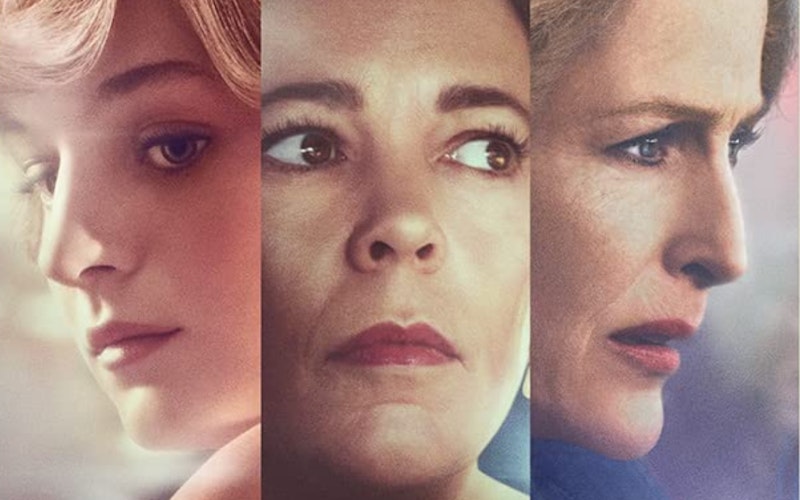
TV
The Weak, the Strong, The Crown
Season 4 of The Crown, the decades-spanning Netflix drama about the British royal family, grapples with the tension between “the weak” and “the strong.” As Queen Elizabeth II (played once again by Olivia Colman) welcomes onto the scene Prime Minister Margaret Thatcher (played brilliantly by Gillian Anderson) and Lady Diana Spencer (newcomer Emma Corrin), we glimpse the inner lives of three powerful women as they navigate what weakness and strength really means.
As I watched these famous (and infamous) women progress through the season and noticed how the characters initially judged as “weak” were transformed into heroes, I started to hear echoes of 1 Corinthians 1:27: “God chose the weak things of the world to shame the strong.”
One of the characters who captures this quality is a common Englishman named Michael Fagan (Tom Brooke). Fagan was famous for breaking into Buckingham Palace in 1982; in Season 4, The Crown imagines what his impromptu audience in the Queen’s bedroom might have looked like. “They say I have mental health problems,” Fagan tells the Queen, slumped on one her beautiful chairs, a stark contrast of poverty amidst the ancient wealth of the monarchy. “I don’t. I’m just poor.” His eyes are wide and alert. Fagan blames Thatcher for his problems and bemoans the state of his nation since she came to power. Known as the Iron Lady and exhibiting relentless political fortitude, Thatcher strove to make England the strongest nation in the world. Her tenure saw cuts in public spending and escalating unemployment numbers. In The Crown, Thatcher insists that unemployment is a result of lazy individuals who rely on the state to babysit them. The country is feeble, she says, because it relies on ideals of collectivism.
When the Queen confronts Thatcher about the unemployment crisis, Thatcher insists that Fagan is a sick man who needs time in a mental-health hospital. She believes that anybody who cannot pull themselves out of unemployment and despair is simply “unremarkable.” The Queen is mortified by this response; you can sense it in the way she sets her teeth and holds back a curt response. Perhaps this is because Elizabeth realizes that she, herself, is only remarkable because of her circumstances. She is only powerful because of her privilege. Michael Fagan has acted as a representative of the people, bringing their case to her. The question is: how will the Queen and Thatcher use their strength to help their people?
The Queen is only powerful because of her privilege.
We might take a lesson on how to use one’s strengths for good from this season’s portrayal of Diana, who not long into Season 4 marries Prince Charles (Josh O’Connor) to become Princess of Wales. She is everything that the royal family is not: emotional, compassionate, a woman who strides eagerly into change. She doesn’t want power; she just wants to be loved. The first time we encounter Diana she has a boyish haircut and a spritely, mischievous grin. She wears sweaters and outdoor boots. She is shy and cries easily. The royal family believes she is the perfect woman for a sensitive and wandering Charles, as she is seemingly naive, meek, and bendable. She’s weak, according to their standards—so she will comply.
But we quickly see that those “weak” qualities in Diana are actually very powerful. As she endures a marriage rife with affairs and resentment, she begins to seek affirmation elsewhere. Her public acts of compassion and empathy endear her to people of the world, even as Charles despises her for it. As Diana is ridiculed by her husband in the final episode, we see how his accusations expose his own weaknesses and insecurities. By contrast, Diana’s tenacity and individuality shine. With blonde hair perfectly coiffed, steely blue eyes lined with black, and a dress suit like an armor of sophistication and originality, she sets her mouth with a determined smug. She does not cry. She cannot find love within the circle of her family, so she will find it in the people she chooses to serve. She represents a threat to the monarchy and their beloved traditions. Not only does the public love her more than their king-to-be, but they crown her as their own: the “people’s princess.” She is ushering in a new kind of tradition, leading with love.
Jesus also led with love. Jesus threw off tradition for the sake of building relationships with those the world viewed as “weak.” He removed barriers; he touched sick people. He didn’t break the law; he embodied its fulfilling promises. He taught us to share what we have—to weep and mourn, to laugh and celebrate. Jesus did not use his power and strength to organize armies or build an empire, but to open blind eyes, create community, and to hold broken people. Jesus taught us to be human. I wonder if the bigger lesson we take from Season 4 of The Crown is similar to what the apostle Paul talks about in his letter to the Corinthians: that our calling is not to be powerful, but to embrace our humanity and follow the way of Christ.
The truth is, as Paul writes, “not many of you were wise by human standards; not many were influential; not many were of noble birth.” But what the world sees as foolish will ultimately “shame the wise,” for “God chose the lowly things of this world and the despised things—and the things that are not—to nullify the things that are, so that no one may boast before him.”
In our weakness, God is strong. Let us not underestimate the power of embracing that vulnerability.
Topics: TV